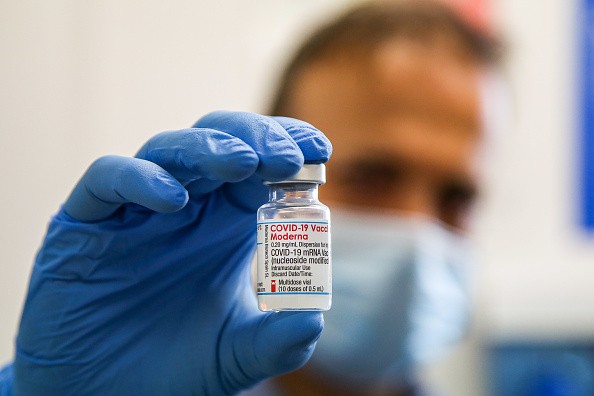On Thursday, a major FDA panel voted in favor of recommended booster doses of Moderna's COVID-19 vaccination for a significant portion of the population.

Panel Approves Moderna's Booster Shot
In a recently published article in The Hill, a panel of independent medical experts unanimously approved of Moderna booster doses for many of individuals who had received the company's COVID-19 vaccine on Thursday, opening the way for a significant increase in the number of people in the United States who are eligible for a second shot.
The FDA's advisory group voted 19 to 0 in support of granting an emergency authorization for a half-dose booster at least six months after the second dosage. People over 65 and other individuals deemed at high risk, as well as those who are already qualified for a Pfizer-BioNTech booster, would be eligible for the additional injection.
The panel's decision isn't legally binding, but the FDA is likely to heed the advice. Moderna boosters may be approved by the government within days. A vaccine advisory group at the Centers for Disease Control and Prevention is scheduled to vote on the idea next week, according to a published article in The New York Times.
Priority of the Booster Shot
Boosters should be recommended for individuals over 65, those between the ages of 18 and 64 who are at high risk of severe COVID-19, and people who are at risk of serious COVID-19 because of their employment or living circumstances, according to the CDC's vaccine advisory group.
The demographic for whom Moderna's booster is advised is the same as for which Pfizer's booster was approved last month. Pfizer's booster is currently available to about 60 million Americans, according to a recently published report in NBC News.
Even if experts are split on whether the general public would benefit, the Biden administration has made boosting for all Americans a priority. Rather than bolstering those who are already protected, the best approach to stop the COVID-19 pandemic is to provide vaccines to the unvaccinated.
Difference Between Pfizer, Moderna
Unlike Pfizer, Moderna proposes using a half dose of the vaccine instead of a full dosage for a booster given at least six months after the first injection. Because of this, Moderna boosters may be less likely to cause adverse effects than the first two doses in the series.
The pharmaceutical company provided data demonstrating that its current two-shot vaccine provides reliable protection for more than five months following the first dose. The vaccination was shown to be 93 percent effective in avoiding all virus-related illnesses and 98 percent effective in preventing severe COVID-19 infections.
In a published article in Time, Moderna claimed that the vaccine's efficacy deteriorates over time, with neutralizing antibody levels falling six to eight months following a second dosage. While a booster did raise antibody levels, FDA evaluators couldn't say if the first vaccination's protection had decreased significantly.
However, Moderna did not claim that a booster is required to avoid serious illness or hospitalization but only said that it could keep one from acquiring infection and mild to moderate illness, according to the firm.








